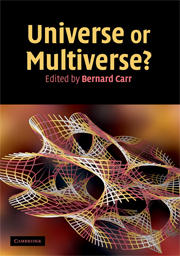I was very disappointed when this title went out of print last year, so it's great to see a new edition out. It always sold consistently...never in huge numbers, but it never sat on the shelf long enough to gather dust, and now that it's out in a second (paperback) edition it's flying off the shelves.

For a penny short of £20 it's a big book, nearly a thousand pages, and every one is packed with detailed information and some superb photography of the vast majority of the planet's mammals. Split along the obvious (but easily navigable) lines of the established taxonomical groups, this is both a valuable reference work and also one of those lovely books to dip into at random. If you're anything like me you'll remember discovering at least one book on your parents shelves like this, one that you would pick up and read through for hours on rainy Sunday afternoons.
There's also a companion
Encyclopedia of Birds, with the same detail and photographic flair, but
Mammals seems to be the one that has grabbed the book-buying public's attention.
EDIT: Bit of an update - this is now the best selling book of the year in my section at work, bulk-selling university texts aside. I've tweaked a tendon in my arm, lifting lots of this book might statistically be to blame.... *rolls eyes*
Encyclopedia of Mammals
Ed. David MacDonald
Oxford University Press
ISBN: 9780199567997



 For a penny short of £20 it's a big book, nearly a thousand pages, and every one is packed with detailed information and some superb photography of the vast majority of the planet's mammals. Split along the obvious (but easily navigable) lines of the established taxonomical groups, this is both a valuable reference work and also one of those lovely books to dip into at random. If you're anything like me you'll remember discovering at least one book on your parents shelves like this, one that you would pick up and read through for hours on rainy Sunday afternoons.
For a penny short of £20 it's a big book, nearly a thousand pages, and every one is packed with detailed information and some superb photography of the vast majority of the planet's mammals. Split along the obvious (but easily navigable) lines of the established taxonomical groups, this is both a valuable reference work and also one of those lovely books to dip into at random. If you're anything like me you'll remember discovering at least one book on your parents shelves like this, one that you would pick up and read through for hours on rainy Sunday afternoons. This thumping big 500 page paperback consists of essays from a wide span of big names in cosmology, theoretical physics, mathematics, philosophy and theology. It is the result of an eponymous Stanford conference in 2003, concerning the controversial concept of a Multiverse - the existence of parallel universes to the observable one, in one form or another.
This thumping big 500 page paperback consists of essays from a wide span of big names in cosmology, theoretical physics, mathematics, philosophy and theology. It is the result of an eponymous Stanford conference in 2003, concerning the controversial concept of a Multiverse - the existence of parallel universes to the observable one, in one form or another.